Don't wanna be here? Send us removal request.
Text
Exploring Renewable Energy Sources for HVAC Systems

In an era of increasing environmental concerns and a growing emphasis on sustainability, the integration of renewable energy sources into HVAC systems is gaining momentum. HVAC (Heating, Ventilation, and Air Conditioning) systems play a crucial role in maintaining indoor comfort and air quality, but they also consume a significant amount of energy, contributing to carbon emissions and environmental degradation. As a result, the exploration of renewable energy alternatives for HVAC service has become imperative in the quest for a greener and more sustainable future.

Solar Power: Harnessing the Sun's Energy for Heating and Cooling
One of the most promising renewable energy sources for HVAC systems is solar power. Solar energy can be utilized in various ways to provide heating and cooling solutions. Solar thermal system use sunlight to heat water or air directly, which can then be circulated through HVAC systems to provide space heating or hot water. Similarly, solar photovoltaic (PV) panels can generate electricity to power heat pumps or air conditioning units, reducing reliance on conventional grid electricity and lowering carbon emissions.
Geothermal Energy: Tapping into the Earth's Natural Heat
Another renewable energy option for HVAC service is geothermal energy. Geothermal heat pumps utilize the relatively constant temperature of the earth subsurface to provide heating in the winter and cooling in the summer. By circulating a fluid through underground pipes, heat is extracted from the ground during the heating season and rejected back into the ground during the cooling season. Geothermal systems offer high efficiency and can significantly reduce energy consumption and operating costs over their lifespan.
Biomass Heating: Utilizing Organic Matter for Sustainable Heat
Biomass heating systems offer another renewable energy solution for HVAC service. Biomass refers to organic materials such as wood, crop residues, or agricultural waste that can be burned to produce heat. Biomass boilers or furnaces can be integrated into HVAC systems to provide space heating or hot water. Biomass heating is considered carbon-neutral since the carbon dioxide released during combustion is offset by the carbon dioxide absorbed by the plants during their growth. However, proper sourcing and management of biomass resources are essential to ensure sustainability and minimize environmental impact.

Wind Power: Harnessing Wind Energy for Ventilation
While less commonly used for HVAC service, wind power can also play a role in renewable energy solutions. Wind turbines can generate electricity to power HVAC systems or provide ventilation in buildings. Wind-assisted ventilation systems use natural airflow created by wind pressure differentials to ventilate indoor spaces, reducing the need for mechanical ventilation and improving indoor air quality. Integrating wind power into HVAC systems can further enhance energy efficiency and sustainability.
Conclusion: Embracing Renewable Energy for Sustainable HVAC Service
As the world continues to grapple with the challenges of climate change and environmental degradation, the adoption of renewable energy sources for HVAC service becomes increasingly imperative. Solar power, geothermal energy, biomass heating, and wind power offer viable alternatives to traditional fossil fuel-based heating and cooling systems. By harnessing the power of renewable energy, HVAC service providers can not only reduce carbon emissions and mitigate environmental impact but also achieve cost savings and enhance energy efficiency. As technology advances and renewable energy solutions become more accessible, the transition towards sustainable HVAC systems holds promise for a greener and more sustainable future.
0 notes
Text
Common Thermostat Problems and How to Fix Them
Discover solutions to common thermostat issues like non-responsiveness, inaccurate readings, and short cycling to maintain optimal HVAC performance. Reference: https://www.fourquartersinc.com/common-thermostat-problems-how-to-fix-them/

0 notes
Text
HVAC System Upgrades: Maximizing Comfort and Efficiency in Your Home

In the realm of home comfort, few things are as vital as a well-functioning HVAC (Heating, Ventilation, and Air Conditioning) system. Whether it's combating the winter chill or the summer heat, your HVAC system plays a crucial role in maintaining a cozy atmosphere year-round. However, as technology advances and energy efficiency becomes a growing concern, homeowners are increasingly looking into HVAC system upgrades to enhance both comfort and efficiency.
The Importance of HVAC System Upgrades
Upgrading your HVAC system isn't just about staying up-to-date with the latest technology; it's about optimizing your home's comfort levels while reducing energy consumption. Aging systems tend to become less efficient over time, leading to higher energy bills and decreased performances. By investing in upgrades, you can not only improve comfort but also save money in the long run.
Enhanced Efficiency with Modern Heating and Air Technologies
Modern HVAC systems come equipped with a range of innovative technologies designed to maximize efficiency. From variable-speed compressors to smart thermostats, these advancements allow for precise control over temperature and airflow, resulting in lower energy usage and improved comfort.
Improved Comfort Through Enhanced Air Quality

Beyond temperature control, indoor air quality is another crucial aspect of home comfort. Upgrading your HVAC system can provide opportunities to integrate advanced filtration systems, humidifiers, and air purifiers, ensuring that the air circulating in your home is clean and healthy. This not only enhances comfort but also contributes to better respiratory health for you and your family.
Long-Term Cost Savings
While the initial cost of HVAC system upgrades may seem daunting, it's essential to consider the long-term savings they can provide. By investing in a more efficient system, you'll reduce your monthly energy bills and potentially qualify for incentives or rebates offered by utility companies or government programs.
Professional Consultation and Installation
When it comes to HVAC system upgrades, it's crucial to seek guidance from qualified professionals. A reputable HVAC contractor can assess your home's specific needs and recommend the most suitable upgrades for maximum comfort and efficiency. Moreover, professional installation ensures that your new system operates at peak performance, minimizing the risk of issues down the line.
Regular Maintenance for Optimal Performance

Once your HVAC system upgrades are in place, regular maintenance is key to preserving their efficiency and prolonging their lifespan. Simple tasks such as changing air filters, cleaning ducts, and scheduling professional tune-ups can go a long way in ensuring that your system continues to operate smoothly.
Environmental Benefits
In addition to personal comfort and financial savings, upgrading your HVAC system can also have positive environmental impacts. Energy-efficient systems consume less electricity, reducing the demand for fossil fuels and lowering greenhouse gas emissions. By minimizing your carbon footprint, you're not only contributing to a healthier planet but also setting an example for sustainable living.
Conclusion
In the quest for ultimate home comfort and efficiency, HVAC system upgrades stand out as a worthy investment. By harnessing the power of modern heating and air technologies, homeowners can enjoy enhanced comfort, lower energy bills, and a reduced environmental footprint. With the guidance of professional contractors and a commitment to regular maintenance, you can maximize the benefits of your HVAC upgrades for years to come.
0 notes
Text
Maximizing Energy Efficiency: Tips for Your Heating and Air Conditioning

Heating and air conditioning systems play a crucial role in keeping our homes comfortable year-round. However, they can also be significant contributors to energy consumption and utility bills. Maximizing energy efficiency not only helps to lower those bills but also reduces your carbon footprint. Here are some tips to ensure your heating and air conditioning systems are operating efficiently.
Regular Maintenance

One of the most important aspects of maximizing energy efficiency is regular maintenance of your heating and air conditioning systems. This includes cleaning or replacing filters, checking for leaks in ducts, and ensuring that all components are in good working condition. A well-maintain system operates more efficiently, reducing energy waste and prolonging the lifespan of your equipment.
Programmable Thermostat Installation
Installing a programmable thermostat can greatly improve energy efficiency by allowing you to set different temperatures for various times of the day. For example, you can set the temperature to be lower during the night or when no one is at home, and higher when people are present.
Sealing and Insulation
Proper sealing and insulation of your home are essential for maintaining a comfortable indoor environment while minimizing energy loss. Insulating attics, walls, and floors helps to keep the desired temperature inside and prevents heat transfer to the outside. Additionally, sealing gaps and cracks around windows, doors, and ducts prevents air leaks, ensuring that your heating and cooling systems don't have to work harder than necessary.
Regular Air Duct Cleaning

Over time, dust, dirt, and other debris can accumulate in your home's air ducts, obstructing airflow and reducing the efficiency of your heating and air conditioning systems. Regular duct cleaning helps to remove these contaminants, allowing air to flow freely and reducing the workload on your HVAC system.
Upgrade to Energy-Efficient Equipment
If your heating and air conditioning systems are outdated, consider upgrading to more energy-efficient models. Newer systems are designed to use less energy while still providing the same level of comfort. Look for systems with high Energy Star ratings, as they meet strict energy efficiency guidelines set by the Environmental Protection Agency (EPA).
Use Ceiling Fans
Ceiling fans can complement your heating and air conditioning systems by circulating air more effectively throughout your home. In the summer, set your fans to rotate counterclockwise to create a cool breeze, allowing you to raise the thermostat temperature without sacrificing comfort. In the winter, reverse the direction of the fans to push warm air down from the ceiling, reducing the need for heating.
Regular HVAC Tune-Ups
Schedule regular tune-ups for your heating and air conditioning systems to ensure they are operating at peak efficiency. Professional maintenance can identify and address any issues before they escalate, preventing breakdowns and prolonging the life of your equipment. During a tune-up, technicians will inspect, clean, and adjust all components, ensuring optimal performance.
Conclusion
Maximizing energy efficiency in your heating and air conditioning systems not only saves you money but also reduces your environmental impact. By following these tips, you can ensure that your home stays comfortable while minimizing energy consumption. From regular maintenance to investing in energy-efficient equipment, there are many ways to improve the efficiency of your HVAC systems and lower your utility bills.
0 notes
Text
Residential HVAC Maintenance: Year-Round Checklist for Homeowners

As a homeowner, ensuring your residential heating and air conditioning (HVAC) system runs smoothly year-round is essential for comfort and efficiency. In this comprehensive guide, we'll walk you through a year-round checklist to keep your residential heating and air in top condition.
Spring Cleaning: Preparing for Warmer Days
With the arrival of spring, it's time to give your HVAC system a thorough once-over.
Change Air Filters: Start by replacing or cleaning the air filters. Clogged filters restrict airflow, reducing system efficiency and indoor air quality.
Inspect Outdoor Unit: Check the outdoor unit for debris, such as leaves, twigs, or dirt. Clean the area around the unit and ensure there's at least two feet of clearance for the proper airflow.
Check Refrigerant Levels: Low refrigerant levels can indicate a leak or other issues. Schedule a professional inspection to ensure optimal refrigerant levels.
Test Thermostat: Replace the batteries if necessary and consider upgrading to a programmable or smart thermostat for energy savings.
Summer Savvy: Keeping Cool in the Heat
As temperatures rise, your HVAC system works harder to keep your home comfortable. Here's how to help it along:
Clean Condenser Coils: Dirty condenser coils can reduce cooling efficiency. Use a hose to gently clean the coils and remove any buildup.
Check Ductwork for Leaks: Leaky ducts can waste energy and reduce airflow. Inspect ductwork for signs of leaks or damage and seal any gaps with duct tape or mastic sealant.
Schedule Professional Maintenance: Consider scheduling a professional tune-up before the peak cooling season.
Adjust Ceiling Fans: Ceiling fans can help circulate cool air more efficiently. Ensure your fans are set to rotate counterclockwise in the summer to create a cooling breeze.

Fall Focus: Preparing for Cooler Weather
As temperatures start to drop, it's time to transition your HVAC system for heating mode.
Inspect Heating Components: Check the furnace or heat pump for any signs of wear or damage. Clean the burners and ensure proper ignition for safe and efficient operation.
Seal Air Leaks: Prevent heat loss by sealing gaps around windows, doors, and ductwork.
Test Carbon Monoxide Detectors: Carbon monoxide leaks can be deadly. Test carbon monoxide detectors and replace batteries if needed to ensure your family's safety.
Schedule Professional Inspection: Consider scheduling a professional HVAC inspection to address any issues before the start of the heating season. A technician can perform a thorough inspection and tune-up to ensure your system is ready for winter.

Winter Wisdom: Staying Cozy and Efficient
During the colder months, proper maintenance is crucial for both comfort and energy savings.
Change Air Filters: Replace air filters regularly to maintain airflow and indoor air quality. Clogged filters can strain your system and increase energy consumption.
Monitor Thermostat Settings: Lowering your thermostat by a few degrees when you're awake or asleep can save on energy costs. Consider investing in a programmable thermostat for effortless temperature control.
Clear Snow and Ice: Keep the area around your outdoor unit clear of snow and ice buildup. Use a gentle brush to remove any accumulation and prevent damage to the unit.
Schedule Professional Inspection: As winter sets in, schedule a professional inspection to ensure your HVAC system is operating safely and efficiently.
Remember, a little maintenance now can save you time, money, and hassle down the road.
0 notes
Text
HVAC Energy-Saving Tips for Every Season
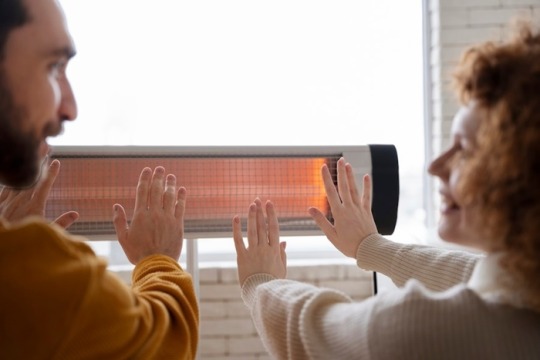
Heating, ventilation, and air conditioning (HVAC) systems are essential for maintaining comfortable indoor environments year-round. However, they can also be significant contributors to energy consumption and costs. With the rising concern for energy conservation and the environmental impact of excessive energy use, it's crucial to adopt practices that promote energy efficiency. In this blog post, we'll explore HVAC energy-saving tips tailored for every season, focusing on heating and plumbing aspects.
Spring

Schedule HVAC Maintenance: Spring is the perfect time to schedule routine maintenance for your HVAC system. A professional technician can clean filters, check for leaks, and ensure all components are functioning efficiently. A well-maintained system operates more efficiently, reducing energy consumption and prolonging the lifespan of your equipment.
Upgrade Thermostat: Consider upgrading to a programmable or smart thermostat. These devices allow you to adjust temperature settings based on your schedule, ensuring your HVAC system isn't working harder than necessary when you're away from home.
Summer
Use Ceiling Fans: Supplement your air conditioning by using ceiling fans to circulate cool air more effectively. This allows you to set your thermostat a few degrees higher without sacrificing comfort, ultimately reducing energy usage and lowering your utility bills.
Seal Air Leaks: Check windows, doors, and ductwork for any leaks that could allow cool air to escape. Proper sealing ensures that your HVAC system doesn't have to work overtime to compensate for lost air, saving energy and improving indoor comfort.
Fall
Clean Air Ducts: Over time, debris and dust can accumulate in your air ducts, obstructing airflow and reducing HVAC efficiency. Schedule a professional duct cleaning that will remove in building up and improving system performance as you transition from cooling to heating.
Insulate Pipes: Insulate exposed pipes to prevent heat loss and reduce the risk of freezing during colder months. By keeping hot water hot and cold water cold, you can minimize the energy required to maintain desired water temperatures, resulting in lower heating and plumbing costs.
Winter

Adjust Thermostat Settings: Lowering your thermostat by just a few degrees can lead to significant energy savings during the winter months. Bundle up with warm clothing and blankets to stay comfortable without relying heavily on your HVAC system.
Weather-strip Doors and Windows: Seal gaps around doors and windows with weather-stripping to prevent cold drafts from entering your home. This simple and inexpensive measure can improve heating efficiency and reduce the workload on your HVAC system.
Year-Round Tips
Replace Air Filters Regularly: Dirty or clogged or air filters restrict the airflow, forcing the HVAC systems to work harder to maintain desired temperatures. Check and replace filters regularly to ensure optimal performance and energy efficiency.
Invest in Energy-Efficient Equipment: When it's time to upgrade your HVAC system, opt for energy-efficient models with high SEER (Seasonal Energy Efficiency Ratio) ratings. While the initial investment may be higher, energy savings over time can offset the upfront costs.
In conclusion, implementing these HVAC energy-saving tips can help you reduce energy consumption, lower utility bills, and minimize your environmental footprint throughout the year. By prioritizing maintenance, making small adjustments to your daily habits, and investing in energy-efficient technology, you can enjoy a comfortable indoor environment while promoting sustainability. Heating and plumbing play crucial roles in your HVAC system's performance, so don't overlook their impact on energy efficiency.
0 notes
Text
The Cost of HVAC Installation: Budgeting Tips and Factors to Consider
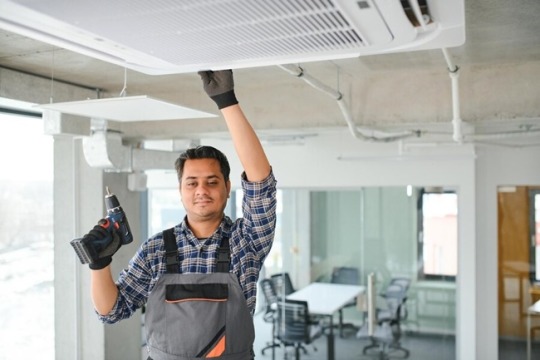
Installing a new HVAC system can be a significant investment for homeowners. Whether you're replacing an outdated unit or installing one for the first time, understanding the costs involved is crucial for effective budgeting. From equipment prices to installation fees, various factors come into play when estimating the total expense. In this article, we'll explore essential budgeting tips and factors to consider when planning for HVAC installation.
Understanding HVAC Installation Costs
HVAC installation costs vary depending on several factors, including the type of system, home size, and regional pricing differences. On average, homeowners can expect to spend between $5,000 and $10,000 for a complete HVAC system installation. However, this figure can fluctuate significantly based on specific circumstances.
Factors Affecting HVAC Installation Costs
Type of System: The type of HVAC system you choose greatly impacts the overall cost. Traditional split systems tend to be more affordable compared to ductless mini-split systems or geothermal heat pumps. Additionally, high-efficiency systems often come with a higher initial price tag but can result in long-term savings on energy bills.

Home Size and Layout: The size and layout of your home influence the complexity of the installation process. Larger homes may require more extensive ductwork or multiple units, increasing installation costs.
Energy Efficiency Upgrades: Opting for energy-efficient upgrades such as programmable thermostats or zoning systems can add to the upfront costs but lead to lower energy bills over time. Consider the long-term savings potential when deciding on these upgrades.
Installation Complexity: Factors such as accessibility to existing ductwork, local building codes, and labor requirements can affect installation complexity and cost. Older homes or those with unique architectural features may require additional customization, driving up expenses.
Budgeting Tips for HVAC Installation
Research and Compare Quotes: Take the time to research different HVAC systems and contractors in your area. Obtain multiple quotes and compare prices, ensuring you're getting the best value for your budget. Look for reputable contractors with positive reviews and experience in HVAC installations.
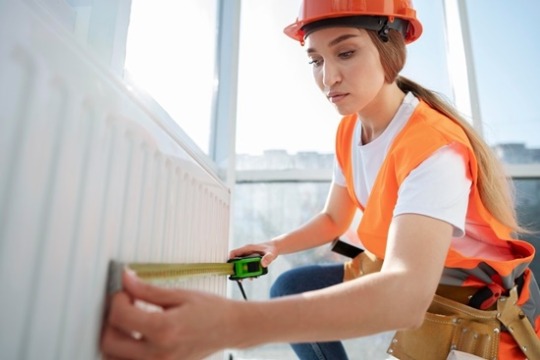
Consider Long-Term Savings: While it may be tempting to opt for the cheapest HVAC system upfront, consider the long-term savings potential of energy-efficient models. Calculate potential energy savings over the lifespan of the system to determine the most cost-effective option.
Factor in Additional Costs: In addition to equipment and installation costs, don't forget to budget for any necessary upgrades or modifications. This may include ductwork repairs, permits, or electrical work required for installation.
Explore Financing Options: If the upfront cost of HVAC installation is beyond your immediate budget, explore financing options available through manufacturers or contractors. Many offer flexible payment plans or financing with low-interest rates, making it easier to afford a new system.
Plan for Maintenance and Repairs: Budgeting for regular maintenance and potential repairs is essential for prolonging the lifespan of your HVAC system. Factor in ongoing maintenance costs when calculating the total cost of ownership.
Conclusion
When budgeting for HVAC installation, it's essential to consider various factors that contribute to the overall cost. By understanding the factors affecting pricing and implementing effective budgeting tips, homeowners can make informed decisions that align with their financial goals. Remember to prioritize energy efficiency, research contractors thoroughly, and plan for long-term maintenance to maximize the value of your investment in HVAC service.
0 notes
Text
Tips for Improving Indoor Air Quality in Residential Spaces

Poor indoor air quality can lead to various health issues, including respiratory problems, allergies, and even long-term complications. Fortunately, there are several measures homeowners can take to enhance the air quality within their residential spaces. From simple behavioral changes to more comprehensive HVAC service solutions, here are some effective tips for improving indoor air quality.
Regular Cleaning and Maintenance
One of the fundamental steps in maintaining good indoor air quality is to keep the living space clean and well-maintained. Regular cleaning activities such as dusting, vacuuming, and mopping help remove dust, pet dander, and other particulate matter that can accumulate on surfaces and in the air. Paying special attention to often overlooked areas such as blinds, upholstery, and air vents can significantly reduce the presence of airborne pollutants.
Effective Ventilation Strategies
Proper ventilation is the key to reducing indoor air pollutants and maintaining a healthy indoor environment. Opening doors and windows whenever possible permits the fresh outdoor air to dilute and to circulate and the indoor pollutants. Additionally, installation of exhaust fans in areas prone to moisture buildup, such as bathrooms and kitchens, helps prevent mold and mildew growth while improving air circulation.
For homes equipped with mechanical ventilation systems, it's crucial to ensure they are operating efficiently and effectively. Regularly checking and cleaning ventilation ducts and fans can help prevent the buildup of dust and debris, ensuring optimal airflow and ventilation throughout the home.
Invest in High-Quality Air Filters
Air filtration plays a significant role in trapping airborne particles and allergens, thereby improving indoor air quality. When selecting air filters for HVAC systems, opt for high-efficiency particulate air (HEPA) filters or those with a Minimum Efficiency Reporting Value (MERV) rating of 11 or higher. These filters are capable of capturing smaller particles, including pollen, mold spores, and even bacteria, resulting in cleaner indoor air.
Control Humidity Levels
Maintaining appropriate humidity levels is essential for preventing mold growth and minimizing the proliferation of dust mites and other allergens. Ideally, indoor humidity levels should be kept between 30% and 50%. Using dehumidifiers in damp areas such as basements can help regulate moisture levels and inhibit mold and mildew formation.
Conversely, during dry seasons, humidifiers can add moisture to the air, preventing respiratory irritation and dryness. However, it's essential to monitor humidity levels closely and avoid excessive humidity, which can foster mold growth and create an ideal environment for dust mites.
Limit Indoor Pollutant Sources
Identifying and minimizing sources of indoor pollutants is crucial for maintaining good air quality. Common sources of indoor pollution include smoking, household cleaners, paints, and volatile organic compounds (VOCs) emitted by furniture and building materials. Encourage smoking outdoors, use environmentally friendly cleaning products, and choose low-VOC paints and furnishings to reduce indoor pollutant levels. Placing doormats at entry points and regularly cleaning floors can further minimize the introduction of outdoor contaminants.
In conclusion, ensuring good indoor air quality requires a combination of preventive measures and proactive maintenance efforts. By incorporating these tips into their routine, homeowners can create a healthier and more comfortable living environment for themselves and their families. From regular cleaning and ventilation to investing in quality air filtration and HVAC service, every step taken towards improving indoor air quality contributes to overall well-being and peace of mind.
0 notes
Text
Commercial HVAC Services in Moorestown, NJ
Understanding the unique needs of Moorestown’s diverse commercial landscape, we offer a suite of HVAC services designed to ensure optimal performance, sustainability, and compliance with the latest energy standards.
Reference: https://www.fourquartersinc.com/commercial-hvac-services-moorestown-nj/

#plumbing#plumbing services#hvac#hvac services#hvac and plumbing#plumbers#hvac in new jersey#plumbing in new jersey#hvac system
0 notes
Text
Expert Commercial HVAC Services in Mount Holly, NJ – Four Quarters Mechanical Inc.
Welcome to Four Quarters Inc., your premier provider of commercial HVAC services in Mount Holly, New Jersey.
#plumbing#plumbing services#hvac#hvac and plumbing#hvac services#plumbers#hvac in new jersey#plumbing in new jersey#hvac system
1 note
·
View note
Text
Residential HVAC Services in Burlington County
youtube
Step into a world of exceptional comfort and reliability with Four Quarters Mechanical Inc. We are your unwavering source for top-quality residential heating, ventilation, and air conditioning (HVAC) solutions right here in beautiful Burlington County, New Jersey. Reference: https://www.fourquartersinc.com/residential-hvac-services-in-burlington-county-nj/
#plumbing#plumbing services#hvac#hvac and plumbing#hvac services#plumbers#hvac in new jersey#plumbing in new jersey#hvac system#Youtube
1 note
·
View note
Text
Energy-Efficient Heating and Cooling Options for Your Home
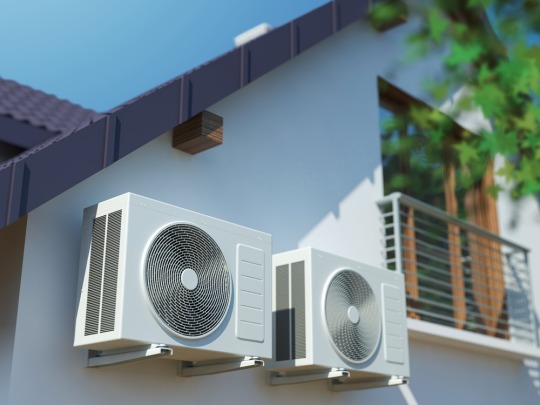
Energy efficiency is a hot topic in today's world, as homeowners seek to minimize their environmental impact and reduce utility bills. When it comes to heating, ventilation, and air conditioning (HVAC) systems, there are several energy-efficient options available that can help achieve these goals. Understanding these options and their benefits is essential for homeowners looking to upgrade or replace their current HVAC systems. In this article, we'll explore various energy-efficient heating and cooling options for your home, with a focus on how they can improve comfort, save money, and reduce energy consumption.
Importance of Energy Efficiency in HVAC System
Energy efficiency in HVAC systems refers to the ability to heat or cool a space while using minimal energy. This is important for several reasons:
● Lower energy bills: Energy-efficient HVAC systems consume less energy, resulting in lower monthly utility bills for homeowners. ● Environmental impact: By reducing energy consumption, energy-efficient HVAC systems will help lower greenhouse gas emissions and minimize environmental impact. ● Comfort: Energy-efficient systems often provide more consistent heating and cooling, resulting in increased comfort for occupants.
High-Efficiency Furnaces

Furnaces are a common heating option for many homes, particularly in colder climates. High-efficiency furnaces use advanced technology to extract more heat from the combustion process, resulting in greater energy efficiency. These furnaces often have an annual fuel utilization efficiency (AFUE) rating of 90% or higher, meaning they convert at least 90% of the fuel they consume into heat.
Key features of high-efficiency furnaces include variable-speed blowers, which adjust airflow based on heating demand, and sealed combustion chambers, which minimize heat loss. By upgrading to a high-efficiency furnace, homeowners can enjoy lower heating bills and improved comfort during the winter months.
Energy-Efficient Air Conditioners
Air conditioning is essential for keeping homes cool and comfortable during the hot summer months. Energy-efficient air conditioners use advanced technologies such as variable-speed compressors and high-efficiency coils to deliver cooling while consuming less energy. These systems often have a seasonal energy efficiency ratio (SEER) rating of 16 or higher, indicating superior energy performance.
In addition to reducing energy consumption, energy-efficient air conditioners may also feature programmable thermostats and zoning capabilities, allowing homeowners to customize their cooling preferences and optimize energy usage.
Heat Pumps
Heat pumps are the versatile HVAC system that can provide both cooling and heating by transferring the heat between the outdoors and the indoors. Unlike traditional furnaces and air conditioners, which generate heat or cold air, heat pump will simply move heat from one location to another, making them highly energy efficient.
There are several types of heat pumps available, including air-source heat pumps, which extract heat from the outdoor air, and ground-source (geothermal) heat pumps, which extract heat from the ground. Both types offer significant energy savings compared to conventional heating and cooling systems, particularly in moderate climates.
Ductless Mini-Split Systems
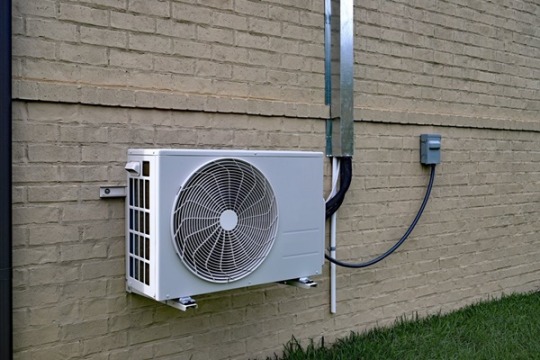
Ductless mini-split systems are another energy-efficient heating and cooling option for homeowners. These systems consisted of the outdoor compressor unit linked to a one or even more of indoor air-handling unit through refrigerant lines. Because they don't require ductwork, ductless mini-split systems eliminate energy losses associated with duct leaks and heat transfer.
In conclusion, energy-efficient heating and cooling options such as high-efficiency furnaces, energy-efficient air conditioners, heat pumps, and ductless mini-split systems offer numerous benefits for homeowners.
Read other related post: HVAC Zoning for Commercial Properties
#plumbing#plumbing services#hvac#hvac and plumbing#hvac services#plumbers#hvac in new jersey#plumbing in new jersey
1 note
·
View note
Text
Residential HVAC Services in Burlington County, NJ – Four Quarters Mechanical Inc.
Step into a world of exceptional comfort and reliability with Four Quarters Mechanical Inc. We are your unwavering source for top-quality residential heating, ventilation, and air conditioning (HVAC) solutions right here in beautiful Burlington County, New Jersey. Our legacy, built over three decades of unwavering commitment to excellence, has established us as the premier HVAC partner for homeowners throughout the county.
#plumbing#plumbing services#hvac#hvac and plumbing#hvac services#plumbers#hvac in new jersey#plumbing in new jersey#HVAC System
1 note
·
View note
Text
Residential HVAC Services Cinnaminson New Jersey
youtube
Welcome to Four Quarters Mechanical Inc, your premier choice for residential heating, ventilation, and air conditioning (HVAC) services in Cinnaminson, New Jersey. Reference: https://www.fourquartersinc.com/residential-hvac-services-cinnaminson-new-jersey/
#plumbing#plumbing services#hvac#hvac and plumbing#hvac services#plumbers#hvac in new jersey#plumbing in new jersey#Youtube
1 note
·
View note
Text
HVAC Zoning for Commercial Properties
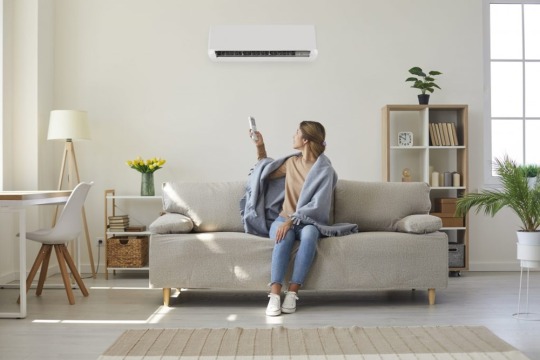
Ensuring optimal comfort for occupants while simultaneously maintaining energy efficiency is a perpetual challenge and as buildings vary in size, layout, and occupancy patterns, traditional HVAC systems often struggle to address the diverse needs of different zones within a structure. However, with the advent of HVAC zoning technology, property owners and managers now have a powerful tool at their disposal to tailor climate control solutions to the specific requirements of individual areas. In this article, we delve into the concept of HVAC zoning and its significant benefits for commercial properties, shedding light on how this innovative approach can revolutionize the management of indoor environments.
The Benefits of HVAC Zoning in Commercial Settings
1. Enhanced Comfort: One of the primary advantages of HVAC zoning is the ability to deliver personalized comfort to occupants. By eliminating temperature inconsistencies and ensuring uniform conditions within each zone, occupants can enjoy a more pleasant and productive indoor environment. Whether it's maintaining optimal temperatures in employee workspaces or provides a comfortable setting for customers in retail areas, zoning helps mitigate discomfort and enhance satisfaction levels.
2. Energy Efficiency: Traditional HVAC systems often operate on a one-size-fits-all approach, leading to unnecessary energy consumption and higher utility costs. In contrast, HVAC zoning enables targeted heating and cooling, directing conditioned air only where it's needed at any given time. By avoiding the over-conditioning of unoccupied or seldom-used areas, property owners can significantly reduce energy waste and achieve substantial cost savings over the long term.
3. Improved Control and Flexibility: With HVAC zoning, property managers gain unprecedented control and flexibility in managing indoor climates. Whether it's adjusting temperatures remotely via smart devices or programming schedules to align with occupancy patterns, administrators can adapt quickly to changing needs and optimize system performance accordingly. Moreover, zoning systems often integrate with building automation platforms, allowing for seamless coordination with other building systems such as lighting and security.
Implementing HVAC Zoning: Considerations and Best Practices
While the benefits of HVAC zoning are undeniable, successful implementation requires careful planning and consideration of several factors:
1. Building Layout and Usage: Analyze the layout of the building and identify areas with distinct climate control requirements. Consider factors such as occupancy density, usage patterns, and thermal loads to determine the optimal zoning strategy.
2. Equipment Selection: Choose zoning equipment and components that align with the specific needs and characteristics of the building. Work with experienced HVAC professionals to select thermostats, dampers, zoning panels, and sensors that offer reliability, compatibility, and scalability.
3. System Design and Integration: Design a zoning system that integrates seamlessly with existing HVAC infrastructure and building management systems. Ensure proper zoning configuration, ductwork design, and control logic to maximize efficiency and performance.
4. Commissioning and Maintenance: Regular commissioning and maintenance are essential to ensure the ongoing effectiveness and efficiency of HVAC zoning systems. Schedule routine inspections, calibration checks, and equipment servicing to address any issues promptly and optimize system operation.
As the demand for sustainable and intelligent building technologies continues to rise, HVAC zoning stands out as a vital tool for meeting the evolving needs of modern commercial properties. With careful planning, implementation, and maintenance, HVAC zoning can revolutionize the way commercial buildings are managed, setting new standards for comfort, efficiency, and sustainability.
0 notes
Text
Residential HVAC Services Cinnaminson New Jersey
Welcome to Four Quarters Mechanical Inc, your premier choice for residential heating, ventilation, and air conditioning (HVAC) services in Cinnaminson, New Jersey. With over three decades of experience, we take pride in delivering the highest quality HVAC solutions to homeowners in Cinnaminson and its surrounding areas.
#plumbing#plumbing services#hvac#hvac and plumbing#hvac services#plumbers#hvac in new jersey#plumbing in new jersey
1 note
·
View note